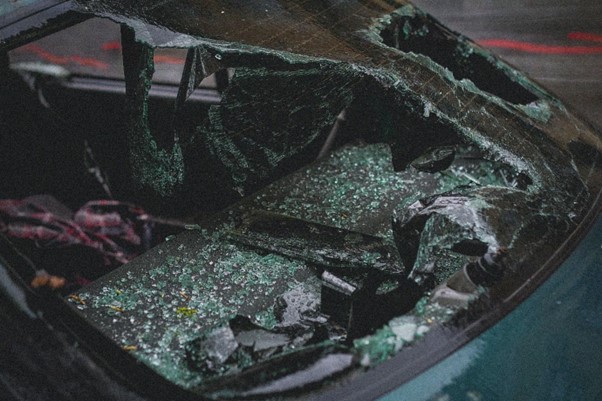You may start experiencing some issues with your day-to-day chore after experiencing a car accident. You may also suffer from frequent episodes of migraines or cluster headaches that make it difficult for you to enjoy your life or even go to work. After a car accident, neurological issues can cause symptoms to persist for weeks or even months. Which can lead to chronic pain and suffering. Unfortunately, major nerve injury or neurological problems brought on by the collision may be the cause of these symptoms. It happens frequently that people involved in car accidents suffer head injuries. An expert claims that even a little collision can cause your head to strike and may result in a concussion.
Due to the tremendous speeds at which vehicles travel and the fact that brains are so prone to damage, even this slight jolt is enough to cause neurological problems. Furthermore, neurological issues can show up in different forms, from minor nerve damage to amnesia.
Seek Medical Care For Neurological Issues
It’s crucial that you seek the care of a neurologist, spine doctor, and other car accident specialists to receive the correct diagnosis and treatment that you require because automobile accidents can and frequently do cause neurological issues. The sooner you receive treatment from spine specialists and other medical professionals, the sooner your symptoms will subside.
It only takes a modest car accident to jolt you enough to sustain neurological damage severe enough to have incapacitating effects. This may result in various other neurological conditions as well. A car accident can harm nerves in one of three ways. By stretching them, adding pressure to them, or having the nerve itself severed.
A Chicago auto accident attorney claims that the following factors can contribute to brain damage:
- Whiplash: a violent jerking motion of the neck and head can pinch or stretch the nearby nerves.
- Lacerations: Any deep skin wounds have the potential to harm nearby nerves.
- Blunt force trauma: If your arms, legs, or head strike a hard surface within the car or outside, the nerves may be compressed.
Depending on the sort of nerve injury you have, you may need surgery, medication, or physical therapy for treatment.
Typical signs of nerve injury include:
- Limbs or appendages that are paralyzed entirely or partially
- Aching and weakened muscles
- Jerking or twitching of the muscles without control
- Feeling tingly or numb
- Stinging feeling
- Heightened sensitivity to heat and cold
In addition to the aforementioned diseases, there are two additional neurological conditions that might develop following an automobile accident. These consist of:
Neuropathy
Trauma from auto accidents may cause this. When physical trauma causes nerves to be partially or completely severed, compressed, squashed or stretched, it results in nerve damage or neuropathy. Broken bones and slipped discs both have the potential to harm nerves by compressing their fibers. Neuropathy, as opposed to central nervous system dysfunction, refers to a problem with peripheral nerves.
Radiculopathy
A nerve’s irritation or compression as it leaves the spinal column causes this ailment. Radiculopathy is a term used to describe a general problem in which one or more nerves do not function properly rather than a specific medical ailment. Along the nerve, it may result in symptoms like numbness, tingling, pain, and weakening. The lower back’s lumbar radiculopathy, the neck’s cervical radiculopathy, and the chest’s thoracic radiculopathy are some prevalent radiculopathies. Even though it is less frequent, thoracic radiculopathy is the most miserable of all.
Activities that place an excessive or recurrent load on the spine frequently result in radiculopathy. Acute trauma from a car collision, however, can also harm the muscles, nerves, discs, and ligaments that run the length of the spine, from the neck to the lower back.
In an automobile accident, most injuries are instantly visible. For instance, a shattered bone or a severe neck or spine injury results in significant discomfort and movement restrictions. Other types of injuries are those that are immediately apparent to the victim, such as an open wound that is bleeding or a significant joint derangement.
Following a Car Accident
Car accident-related nerve injury can have severe, incapacitating repercussions, including excruciating pain, excruciating headaches, emotional and mental issues, and the inability to function. Untreated neurological injuries can result in a wide range of health problems, such as crippling pain, loss of muscle tone, numbness and tingling in both the upper and lower extremities, and drop foot.
Neurological conditions necessitate a thorough and comprehensive medical examination. Accident victims who have neurological problems and nerve damage could require months of specialized care, treatment, and rehabilitation. You risk irreparable damage if you don’t receive this treatment. A sympathetic and knowledgeable car accident attorney should be consulted in addition to receiving medical attention.
Which Sorts of Nerves Are in Our Bodies?
Nerves play a crucial role in how our bodies work because they send electrical signals to various sections of our bodies so we can carry out daily activities. We can have major issues when these nerves are destroyed and unable to transmit impulses throughout our body, particularly if the damage is done close to the brain or spinal cord.
There are three primary categories of nerves:
Autonomic Nerves
These nerves regulate a variety of automatic body processes, including heart rate, digestion, and blood pressure.
Motor Nerves
Our motor nerves control our ability to move around. And damage to these nerves can hamper our ability to move. Which can also result in muscle weakness and spasms.
Sensory Nerves
These nerves connect the spinal cord to the brain and inform us of how physical sensations such as heat, cold, softness, and hardness feel.
Final Thoughts
An automobile collision might result in neurological damage. These kinds of injuries can take days, weeks, or even months to manifest themselves. Neurological conditions can impact many aspects of a person’s body. Because nerves help the body operate properly. Damages for such injuries can be difficult to recover but a skilled lawyer will be able to get you the best compensation.
If you have experienced neurological issues as a result of a car accident, a car accident lawyer can help you. They will help you obtain the compensation you deserve. As well as, provide legal advice and support. You shouldn’t be stuck paying medical fees and dealing with the consequences of nerve damage. Especially when it wasn’t your fault.
Consider contacting an injury lawyer to assist you with your case if you experienced nerve damage following a vehicle accident. They will help protect your rights. But, if you are not sure you need a lawyer click here to learn when you should hire a car accident lawyer.


